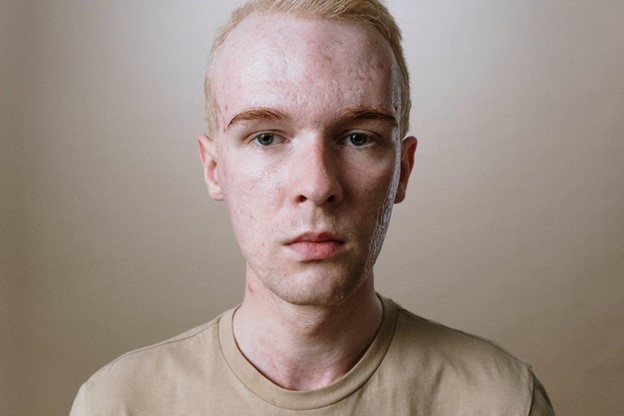
Acne is a prevalent skin condition that affects people of all ages, genders, and backgrounds. While the most common symptom of acne is pimples or blemishes on the face, chest, or back, some people may also experience itchy or irritated skin. If you’re wondering why your acne is itchy and what this could mean for your skin health, read our article.
Is Acne Itchy? Yes, acne can be itchy. According to Dr.Paul Jarrod Frank, it is common for acne to itch. Moreover, he also said that individuals may often pick at their acne, which can exacerbate the feeling of itching.
What Itchy Acne Could Mean?
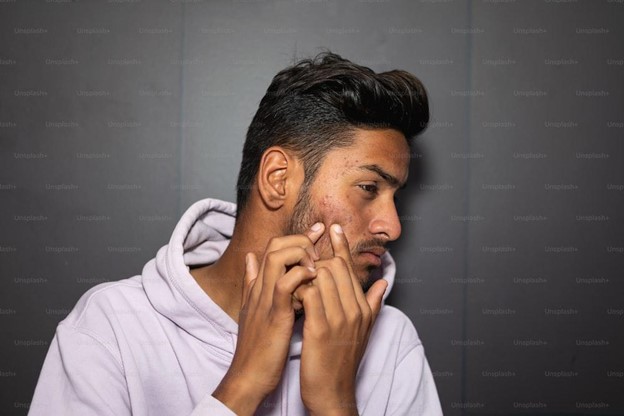
Itchy acne could mean several things. I have explained the top 5 causes below:
1. An allergic reaction to acne products
Some individuals can be allergic to certain ingredients found in acne products. Common allergens in topical creams, cleansers, and other acne treatments include salicylic acid, benzoyl peroxide, and retinoids.
These allergens can cause an itchy rash on the skin, often needing to be treated with a steroid cream or antihistamine.
2. A side effect of acne treatments
It is also possible for acne treatments to cause an itchy reaction in some individuals. This can happen when a particular treatment is too strong or irritating for the individual’s skin.
In this case, it is essential to discontinue using the product and seek advice from a doctor or dermatologist about alternative treatments.
3. Cystic acne
Cystic acne is severe acne in which the skin is inflamed and painful. This can cause itching, as it can be very uncomfortable and irritating for the individual. It’s important to note that it cannot be treated with over-the-counter medications, so it is best to seek advice from a dermatologist or healthcare professional if you have this type of acne.
4. Bacterial folliculitis
Bacterial folliculitis is a skin condition that occurs when bacteria infect the hair follicles, leading to an itchy rash on the skin. Various bacteria, including Staphylococcus aureus and Pseudomonas aeruginosa, can cause the infection. Symptoms of bacterial folliculitis include red bumps, itching, and burning.
Treatment for this condition usually involves antibiotics or antifungal medications.
5. Pityrosporum folliculitis
Pityrosporum folliculitis is a skin condition caused by an overgrowth of yeast, which can lead to itchy acne-like bumps. These bumps are usually seen on the chest, back, and shoulders and can cause itching or burning sensations.
Treatment for this condition usually involves topical antifungal creams or oral antifungal medications.
How to deal with itchy acne?
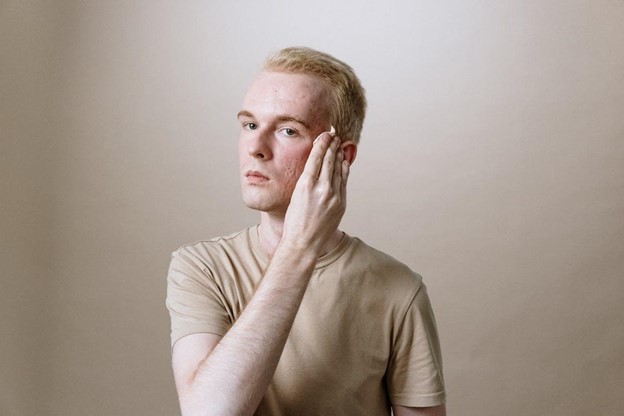
It is essential to properly care for your skin if you are experiencing itchy acne. Here are some tips on how to deal with itchy acne:
1. Be gentle to the skin
It is essential to follow the instructions of any acne treatment you may be using. Products that are too strong or irritating for your skin can cause further irritation and itching.
Be gentle to the skin. While scrubbing away at your face or picking at your acne may be tempting, this can cause more harm than good. Treat your skin gently using mild cleansers and avoiding harsh scrubs or exfoliants. Because dry skin also causes itchiness.
2. Avoid scratching or picking pimples
It is crucial to avoid scratching or picking at your pimples, as this can lead to further irritation and infection. Instead, use a gentle cleanser and apply warm compresses to reduce the itching sensation.
If the itch persists, over-the-counter topical creams such as hydrocortisone can provide relief.
3. Protect the skin from the sun
Protecting the skin from the sun is essential, as UV rays can worsen itchy acne. Wear specialized acne sunscreen outdoors and cover up with a hat or long sleeves if possible. Using non-comedogenic moisturizers with SPF 30 or higher can also help reduce the risk of sun damage to the skin.
Furthermore, avoid using products that contain ingredients such as benzoyl peroxide or salicylic acid, as these can worsen the itching.
4. Use over-the-counter medications
Several over-the-counter medications, such as hydrocortisone creams and antihistamines, can help reduce the itching associated with acne. However, it is essential to read the instructions on the packaging carefully before using any product, and if in doubt, it is best to seek advice from a pharmacist or doctor.
5. Get treatment for cystic acne
Cystic acne can be uncomfortable and irritating, causing itching, inflammation, and pain. If you believe you have cystic acne, it is crucial to seek advice from a dermatologist or healthcare professional. Treatments usually involve prescription medications, such as oral antibiotics or retinoids, which work to reduce the size of the spots and reduce inflammation.
6. Try antifungal products on itchy body acne
In addition to topical creams or oral medications prescribed by a doctor, antifungal products can treat itchy body acne. These products reduce the overgrowth of yeast on the skin, which can help reduce inflammation and itching associated with this type of acne.
Most antifungal products are applied topically to the affected area and are available over the counter or with a doctor’s prescription.
Moreover, you should also read our blog post about fungi acne treatment.
Other Common Treatments For Acne Itch
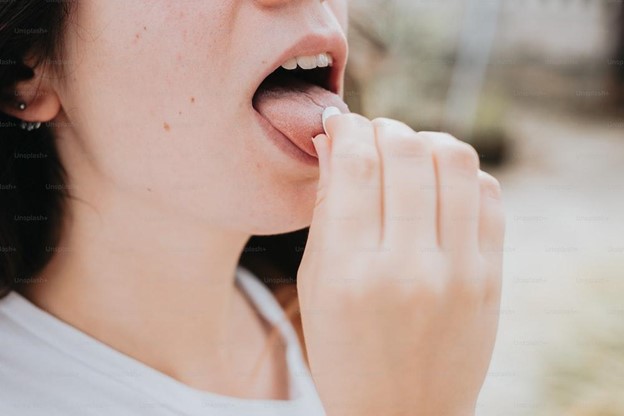
In addition to the treatments and remedies listed above, several other treatments are available for itchy acne. These include:
• Oral antibiotics: Prescription-strength oral antibiotics can help reduce inflammation, redness, and itching associated with itchy acne. It is essential to use these medications as directed and speak to a doctor if side effects occur.
• Corticosteroid injections: Corticosteroid injections are also available from a dermatologist, and they can help reduce itching, redness, and inflammation associated with itchy acne. As they are strong medications, these injections should only be used under the guidance of a doctor.
Final Verdict
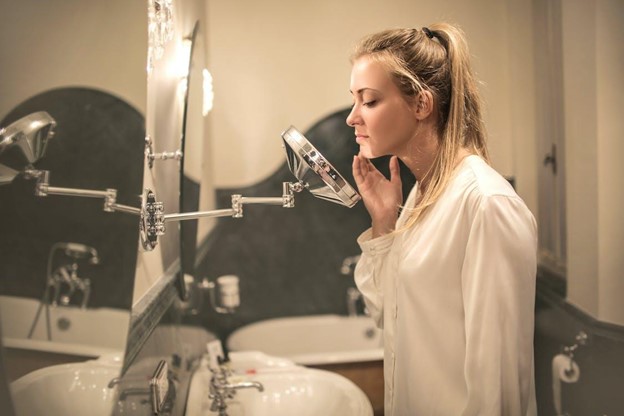
After reading our article, we hope you will understand itchy acne, its meaning, and how to treat itchy acne.
However, It is essential to remember that there are several treatments for itchy acne, so it is best to consult a doctor or dermatologist before trying any remedies.
Moreover, we have also written an article about a detailed blog post on fungal acne. Read it to know the type of acne you are suffering from.
More Content
- The Best Moisturizers for Fungal Acne in 2023
- Safe Moisturizer Alternatives to Avene Tolerance Extreme Emulsion
- Forehead Fungal Acne
- 18 Killer SunScreens for Fungal Acne
- Fungal Acne-Safe Toners Your Skin Will Love
- Fungal Acne Cleansers – An Updated List
- The Importance Of Patch Testing Skincare Products
- Top-Rated Benzoyl Peroxide Face Wash for Acne
- Malezia Skincare: A Game-changer for Fungal Acne
- What is Fungal Acne
Join the Folliculitis Scout Community
Above all, know that you aren’t alone in your fungal acne problems. There’s a whole community of people with this issue that are ready to share their tips and tricks for treating the problem. We love our community at Folliculitis Scout! Socialize with us as well on Facebook. It’s so easy to Join and become part of a community that truly supports each other through the journey to better skin.
- Thomas. “Dermatologist Online Media NYC | New York | Manhattan.” PFrankMD, www.pfrankmd.com/dermatologist-media-gallery-nyc/online-media.
- @ClevelandClinic. “Cystic Acne: What Is It, Symptoms, Causes and Treatment.” Cleveland Clinic, my.clevelandclinic.org/health/diseases/21737-cystic-acne.
- “About Staphylococcus Aureus – MN Dept. Of Health.” About Staphylococcus Aureus – MN Dept. Of Health, www.health.state.mn.us/diseases/staph/basics.html.
- “Best Fungal Acne Cleanser.” Folliculitis Scout, 21 Feb. 2021, folliculitisscout.com/skin-care/the-best-fungal-acne-safe-cleanser-an-updated-list.
- “Fungal Acne.” Folliculitis Scout, 18 Feb. 2021, folliculitisscout.com/skin-care/the-best-fungal-acne-safe-sunscreens-the-ultimate-guide.
- “Fungal Acne Treatment: The Ultimate Guide &Mdash; Folliculitis Scout.” Folliculitis Scout, 28 Feb. 2021, folliculitisscout.com/skin-care/fungal-acne-treatment-the-ultimate-guide.
- “Fungal Acne.” Folliculitis Scout, 15 Feb. 2021, folliculitisscout.com/skin-care/what-is-fungal-acne-everything-you-need-to-know.
